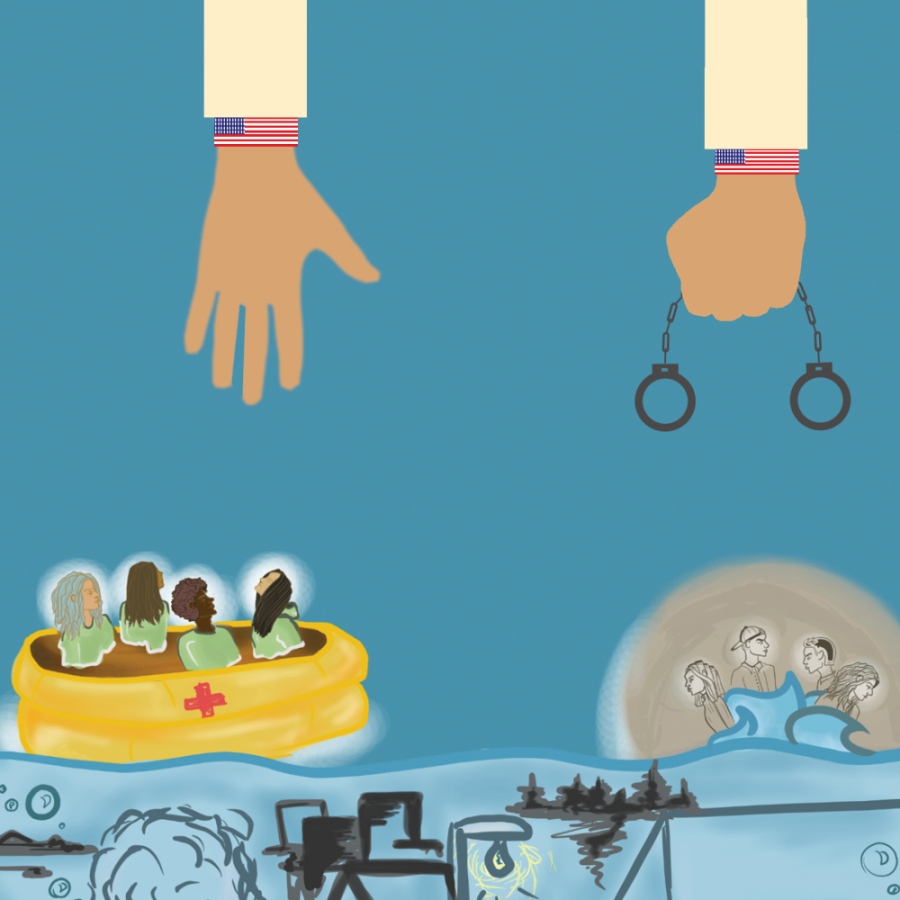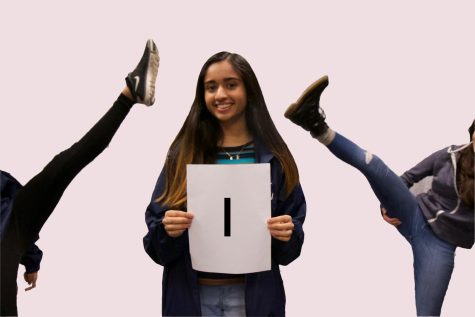The undocumenteds’ plight in Hurricane Harvey
Immigration status and lack of citizenship should not interfere with access to safety
September 28, 2017
On Aug. 25, Hurricane Harvey ravaged the southern coast of Texas, leaving destruction in its wake. The total damages are currently estimated to be around $190 billion, surpassing the cost of both Hurricane Katrina and Hurricane Sandy combined. At least 70 people have died due to the storm, and many shelters have been set up around the Houston area. Most victims have sought refuge in shelters, and many have already been saved, but one group may be struggling to find the assistance its needs.
According to PBS News, approximately 600,000 undocumented immigrants live in Houston, the city which has suffered the most from Hurricane Harvey. Due to fears of deportation and revealing their undocumented status to government officials, many of these immigrants and their families are afraid of staying in shelters.
Houston mayor Sylvester Turner has been communicating to the public that shelters will be safe for the undocumented, but misinformation has led to continued fear about the protection shelters offer. Many undocumented immigrants are afraid that their families will be separated during such a panicked time and are choosing to hide instead of seeking help. Numerous untrue stories of punishments and deportation circulated after immigration checkpoints run by the U.S. Immigration and Customs Enforcement (ICE) near the Rio Grande Valley remained open through the storm. As certain media outlets were quick to publish inaccurate stories about immigration enforcement operations being conducted at shelters, this misinformation spread rapidly across social media outlets, prompting outrage from all over the nation. False rumors were also spread from the chaos and anxiety of the situation, since many undocumented immigrants have expressed their fears about fingerprint checks, immigration checkpoints and increased border patrol, which have all deterred families from seeking help. As a result, many undocumented immigrants sought refuge under unsafe structures such as freeways and abandoned buildings after the storm, making it harder to find them and give them the assistance they needed. Small groups of volunteers have attempted to rescue victims from the rubble, but they fear that they will not be found in time.
“No matter who they are, the people of Texas have united on the front to help those in need,” said junior Harsha Jandhyala, a student at Westwood High School in Austin, Texas. “Examples of this would be first responders from all over the state going to Houston immediately after the storm and helping out.”
As emotionally taxing as a natural disaster is on any community, the economic burden of having to rebuild lives and homes may be much higher for the undocumented. While most American citizens qualify for some form of monetary aid from the Federal Emergency Management Agency (FEMA), the undocumented are not eligible to receive such financial assistance. Some families without citizenship status may be able to earn a small amount of aid from relatives who are citizens, but many are afraid that the government will use FEMA as a way to round up as many undocumented immigrants as it can, despite the current circumstances.
“Communities should protect undocumented immigrants because support should not be conditional upon immigration status,” said Cameron McConway, a sophomore at the University of Texas at Austin. “Undocumented immigrants are part of the community and deserve the same support as anyone else.”
During a natural disaster, the safety of endangered communities should override the power of the court system. Immigration laws in this country are a heated topic of controversy, and there are definitely two sides to the coin. Nevertheless, it is important to put political beliefs aside in these times of crisis.
“I believe that in times of natural disaster, the first priority is making sure everyone is safe,” said Jandhyala. “It does not matter who is and is not a citizen of the country, we have a moral obligation to make sure that we are doing our best to keep everyone out of harm’s way.”
There is little to lose by aiding the less fortunate in shelters, but there is a price to pay for allowing their lives to be taken away because of their fear. The base of the Statue of Liberty states, “Give me your tired, your poor / Your huddled masses yearning to breathe free / The wretched refuse of your teeming shore / Send these, the homeless, tempest-tost to me.” These words not only encompass American values such as kindness and compassion, but also remind the nation of its duty to protect the less fortunate and most vulnerable.
America is in the era of one of its most bitterly divisive elections and presidencies, polarizing the nation. Opposing factions of Red and Blue, Black and White and the Haves and the Have-nots continue to divide this country, but at the moment, the duty of every citizen is to strive to ensure that the raging waters of Harvey do not wash away the empathy and love that generations of Americans have built over the centuries.




























































